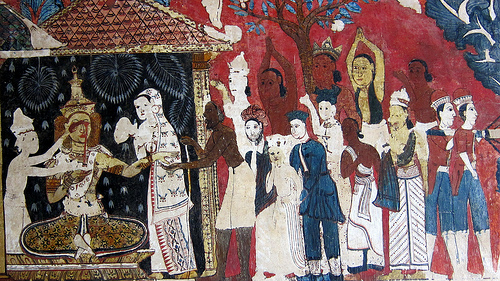ORGAN DONATION
 |
|
The Bodhisattva giving his eyes to a blind man. Painting from Sri Lanka, early 19th century |
Due to advances in medicine, it is now possible for certain bodily organs to be removed from one person and used to replace the same organ which has stopped functioning in the body of another person. Such procedures are possible because of organ donation. Most commonly the organ to be donated is removed from the donor after he or she has died, but sometimes people who are alive and well donate one of their organs to a member of their family who needs it. Several years ago, a young Buddhist monk in Sri Lanka donated one of his kidneys to a girl who was not related to him and whom he had never met. Apparently the monk had read of the little girl's need and, moved by compassion, made his donation.
Interestingly, the possibility of and the virtue of donating one's organs for the benefit of others was considered in Buddhism over 2000 years before it actually became possible. In the Jàtaka there is a fascinating story in which the Buddha, in one of his former lives as a bodhisattva, donated his eyes to a blind man. The story relates in detail how his eyes were removed from their sockets, how the optic nerves were severed and how they were then surgically implanted into the sockets of the blind man (Ja.IV,407). In Buddhism, to give one's life for a friend is considered one of the greatest and most noble gifts (D.III,187), but to willingly give parts of one's body that another might live is hardly less wonderful.